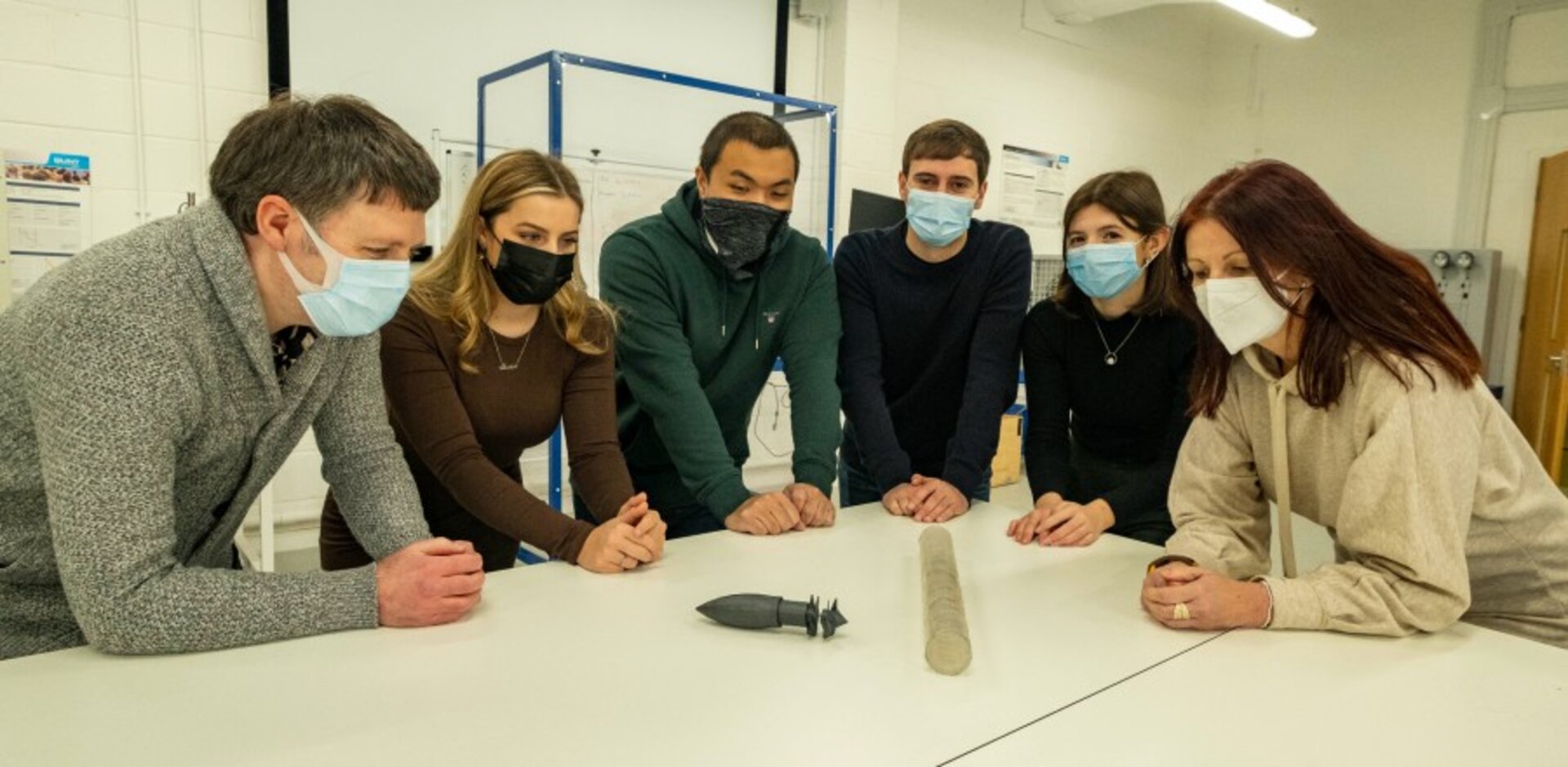Engineering students turning rain into power

Student engineers have brought to life a school pupil’s idea to use Scotland’s rainfall as a source of power – and it has landed them an industry award.
Glasgow Caledonian University engineering students won a Gold Award at the Primary Engineer Leaders Awards in the Prototype Build category.
The students worked on designing a ‘Hydro-Paddle’, an idea created by Kinross High School pupil Heather Cox when she was in P7 at Portmoak Primary School. Heather’s idea was to have a hydro-turbine in a drainpipe, fed by water from the gutter, in order to use rainfall to generate power for a house.
The Leaders Award competition asks school students, “If you were an engineer, what would you do?”, and involves a visit to the school from an engineer to help inspire them. The winning entries from this competition are then shared with universities around the UK, and a student group is charged with turning the pupil’s idea into a working prototype.
The GCU engineers came from two programmes within the Department of Mechanical Engineering: MEng Mechanical Electronic Systems Engineering (Mollie Reid, Roel Doloiras, Matthew O’Hagan) and MEng Computer Aided Mechanical Engineering (Jessica McCreath, Matthew Duiguid).
Due to COVID-19 restrictions, the group largely focused on a virtual prototype, but did also produce a 3D-print model.
Dr Andrew Cowell, a senior lecturer at GCU and supervisor of the project, said the award continues GCU’s strong relationship with Primary Engineer, building on the strength of the Flat Pack Wind Turbine project that has been ongoing for several years.
“We’re very pleased to work so closely with Primary Engineer, and this award is great recognition of the students’ efforts. Thanks must also go to Dr Patricia Munoz de Escalona, who has co-supervised these projects since their inception.”
Mollie Reid, one of the students who worked on the project, said: “One of the main factors in the Hydro-Paddle’s success was its aim to tackle climate change on a small scale, which can be done domestically by utilising what we see a lot of in Scotland − rain! The design was brought to life using skills we had learned throughout our modules and further research on similar small-scale hydro turbines. However, we didn't find any as small as the Hydro-Paddle during our extensive research.”
You can see details of the students’ design on YouTube: https://www.youtube.com/watch?v=m7qNXL6sczI.
